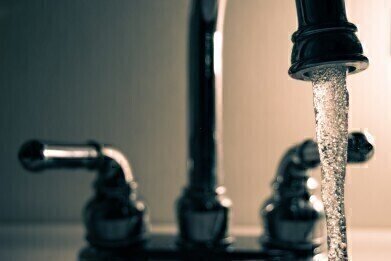Water/Wastewater
Why is Water Quality Monitoring Important?
Apr 08 2015
When we turn on the tap and fill up a glass, go for a dip in the ocean or fry up a freshly caught fish from the local lake, most of us take it for granted that these are all safe actions. The reality is that behind the scenes, scientists work tirelessly to ensure that the quality of the world’s most valuable resource is as high as possible. From lakes and streams to coastal waters and estuaries, water quality monitoring is a critical practice carried out in countries across the globe.
So why is monitoring the quality of water so important? With the World Water Assessment Programme reporting that every day a staggering two million tons of human waste is disposed into water courses, keeping tabs on quality is critical! At its core, the practice serves five major purposes.
- Results are used to pinpoint any changes or trends that appear in water bodies over a period of time. These can be short of long term developments.
- Regularly monitoring water quality is a crucial part of identifying any existing problems, or any issues that could emerge in the future. For example, data has been used to reveal that over the past few years, increases in fertilisers used for food production had increased global nitrogen pollution in rivers by up to 20%.
- When designing and developing pollution prevention and management strategies data collected from water quality monitoring efforts is hugely helpful. With 70% of untreated industrial waste dumped straight into water systems, pollution management is a must.
- Today governments, communities and businesses are required to meet a range of water quality goals. Monitoring data is used to determine whether or not pollution regulations are being complied with.
- From oil spills and radiation leaks to floods and mass erosion, water quality monitoring data is a must when developing emergency strategies.
How is water monitoring carried out?
Water quality monitoring data is incredibly useful however it’s not always easy to gather. Specialists use a range of different techniques to put together results, including taking samples of chemical conditions, analysing sediments and using fish tissue extracts to find traces of metals, oils, pesticides, dissolved oxygen and nutrients. Physical conditions such as temperature, erosion and flow offer valuable insight while biological measurements regarding plant and animal life indicate the health of aquatic ecosystems.
At the end of the day, water quality monitoring is an essential part of keeping the planet healthy and sustainable. As we continue to build cities, clear land for farming and make other man-made changes to the natural environment, water quality monitoring becomes increasingly important. Land based activities can have a huge impact on water systems and it’s critical that we realise how these affect waterbodies, both above and below ground.
Further reading...
If you’d like a better understanding of water monitoring, you can read about it in action in this article, Water Pollution in Asia – A Brief Review of Monitoring Technologies, or find out what actually happens to data collected from water quality monitoring.
Digital Edition
AET 28.2 April/May 2024
May 2024
Business News - Teledyne Marine expands with the acquisition of Valeport - Signal partners with gas analysis experts in Korea Air Monitoring - Continuous Fine Particulate Emission Monitor...
View all digital editions
Events
Jul 30 2024 Jakarta, Indonesia
China Energy Summit & Exhibition
Jul 31 2024 Beijing, China
2024 Beijing International Coal & Mining Exhibition
Aug 07 2024 Beijing, China
IWA World Water Congress & Exhibition
Aug 11 2024 Toronto, Canada
Aug 25 2024 Stockholm, Sweden and online









.jpg)








